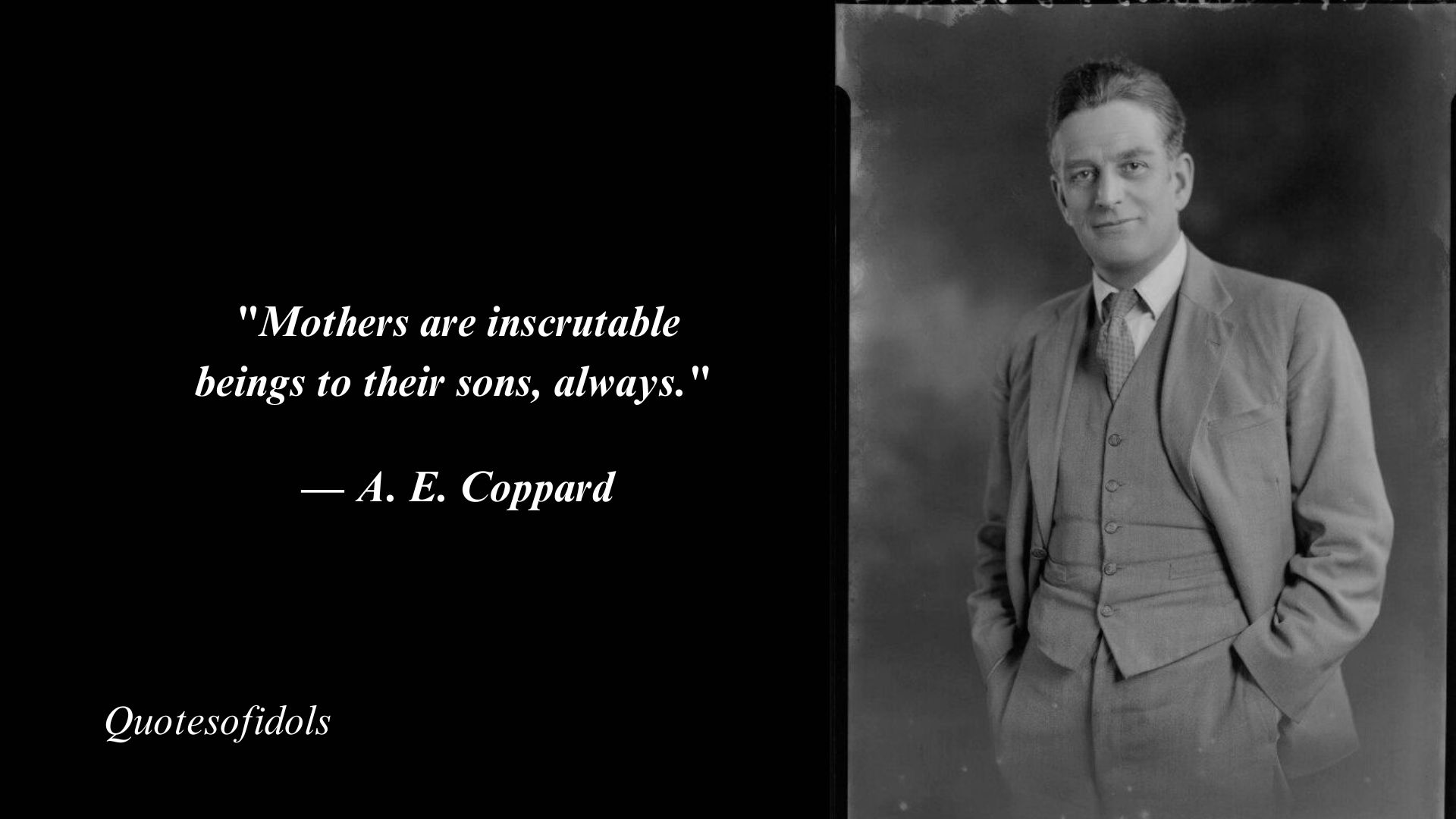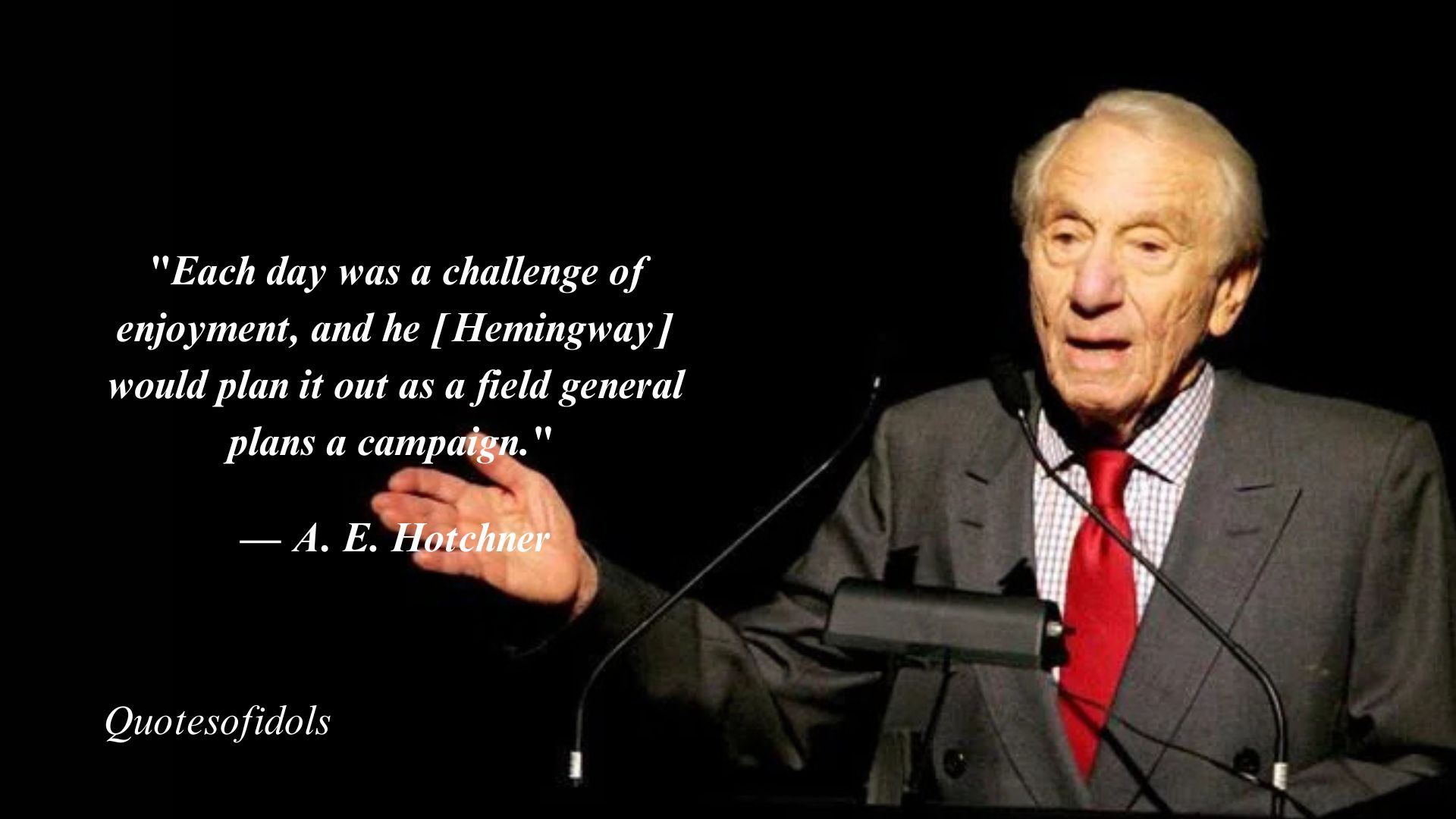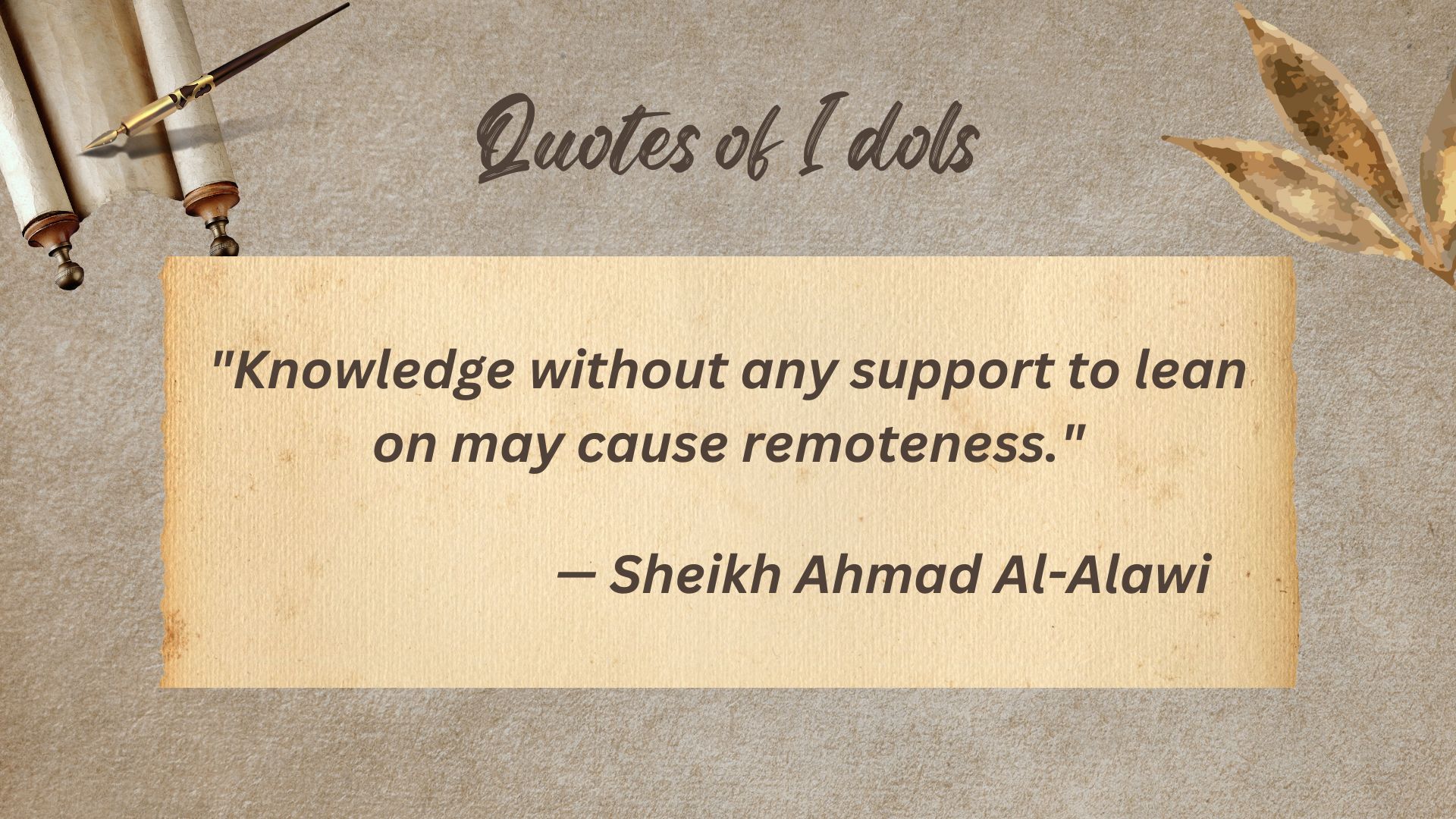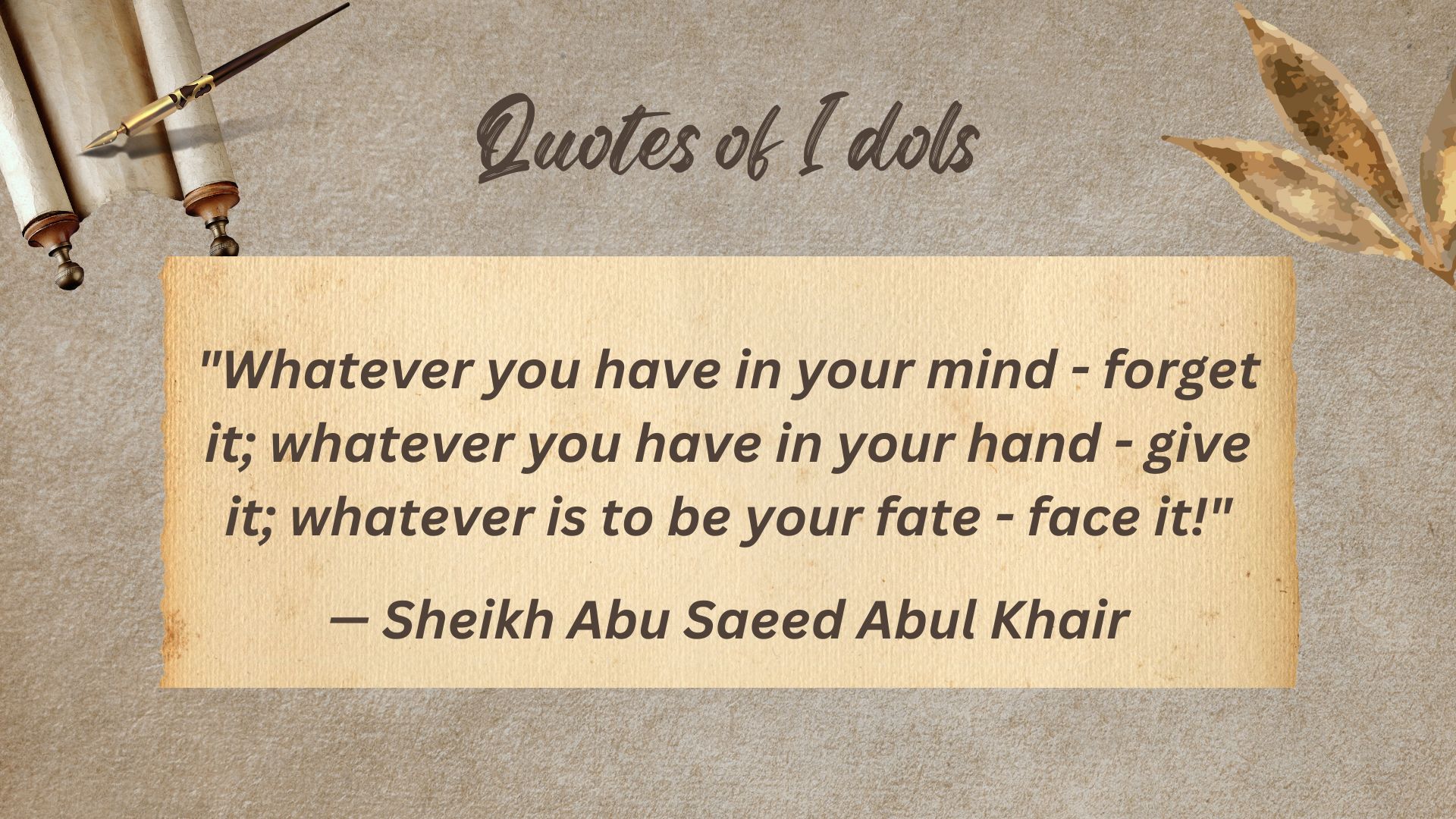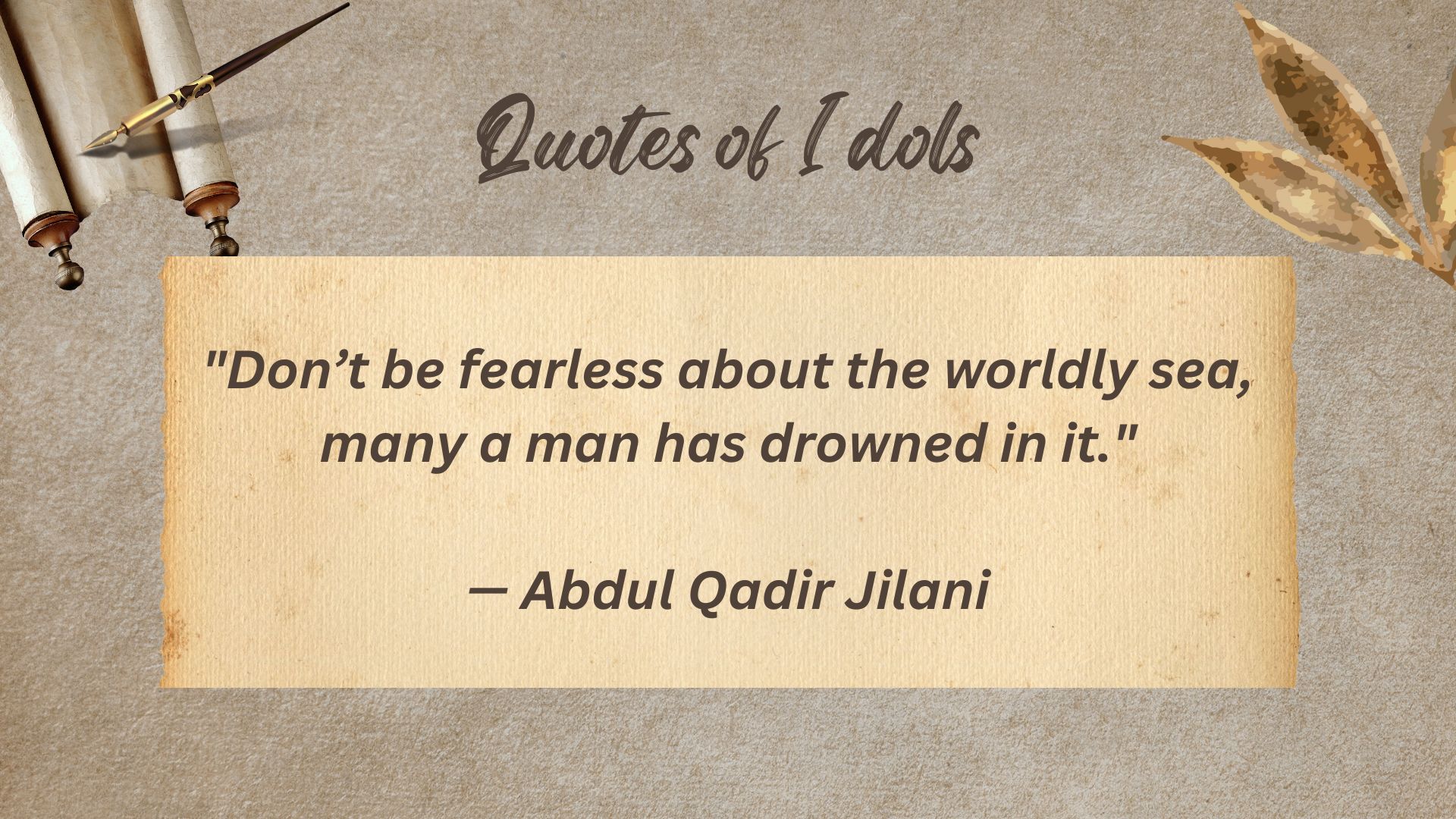All Time Famous Quotes of Abul Hasan Hankari
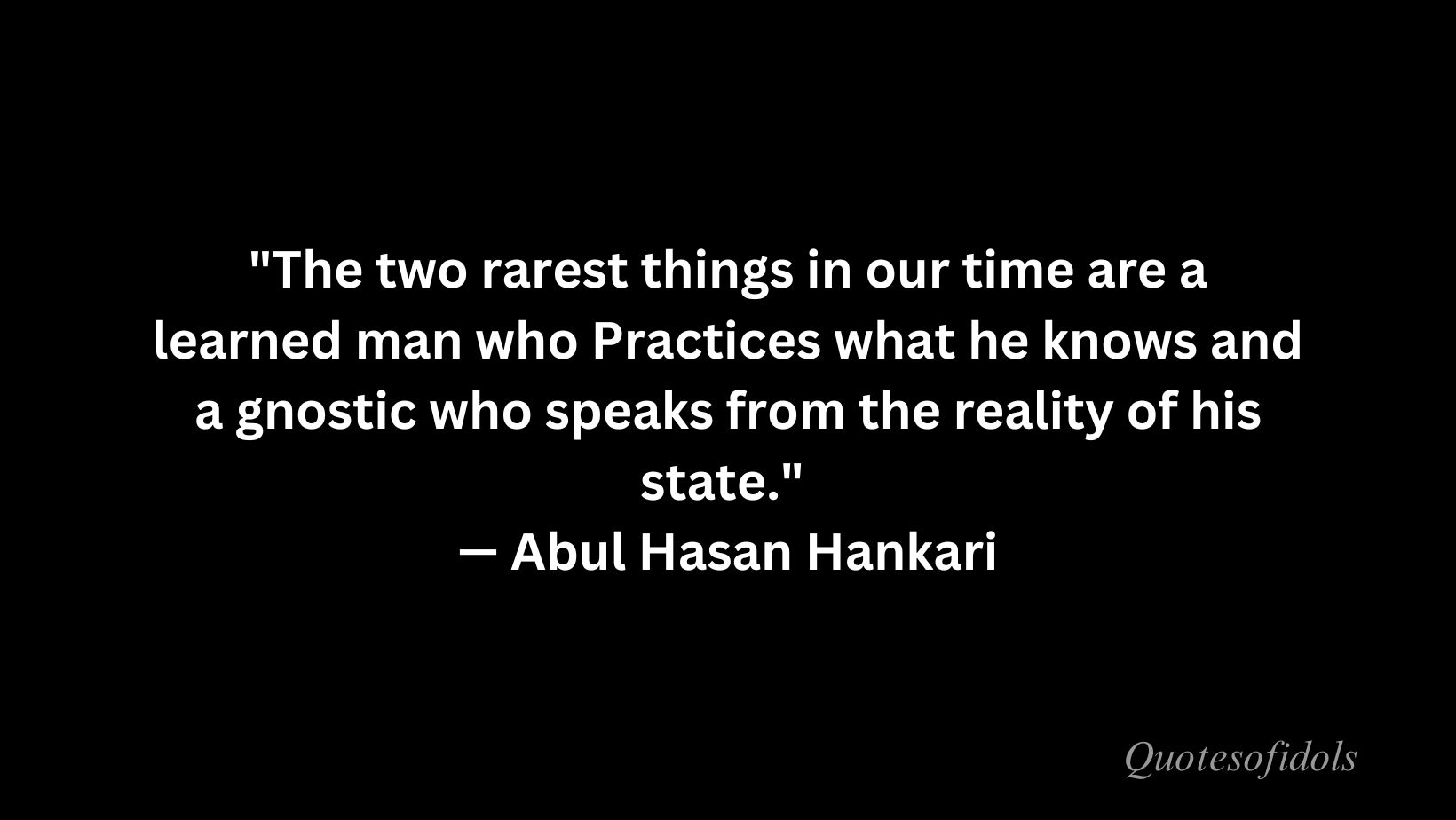
Abul Hasan Hankari, a revered Sufi saint and scholar from the 11th century, hailed from Hankar, Afghanistan. While specific quotes attributed to him are scarce, his spiritual teachings profoundly influenced Sufism, particularly within the Hanafi school of Islamic jurisprudence. Hankari’s wisdom emphasized love for God, inner purification, and the pursuit of spiritual enlightenment. Like many Sufi masters, his teachings were likely conveyed through stories and poetry, inspiring generations of followers to deepen their spiritual connection and devotion. Despite the scarcity of direct quotes, Hankari’s legacy endures through the spiritual practices and teachings carried on by his followers, reflecting the timeless principles of Sufism that continue to resonate with seekers of spiritual truth.
Abul Hasan Hankari Quotes
01. “The two rarest things in our time are a learned man who Practices what he knows and a gnostic who speaks from the reality of his state.”
— Abul Hasan Hankari
02. “The Sufi knows God through God; he eats; drinks, sleeps, and loves through Him.”
— Abul Hasan Hankari
03. “Sufism is liberty so that a man is freed from the bonds of desire, and generosity, and abandonment of useless trouble and munificence.”
— Abul Hasan Hankari
04. “Union with God is separation from all else, and separation from all else is union with Him.”
— Abul Hasan Hankari
05. “The mark of the poor one is contentedness when he has nothing and generosity when he has plenty.”
— Abul Hasan Hankari
06. “Sufism is to leave all pleasures of the lower soul.”
— Abul Hasan Hankari
07. “Tasawwuf is not a system composed of rules or sciences, but it is morals. This is so because if it were a rule, it could be made one’s own by strenuous exertion and if it were a science, it could be acquired by instruction. On the contrary, it is moral form yourselves on the mortal rature of God; and it is impossible to come forth to the mora! nature of God either by means of rules or by means of science.”
— Abul Hasan Hankari
08. “There are some saints in the world who, if deprived of the company of the Lord even for a moment, would die. These saints eat with Him, steep with Him. ask of Him, converse with Him and are with Him.
— Abul Hasan Hankari
09. “Ecstasy and music were part of his mystical life. For him love is to rend the veils and unveil the secrets.
— Abul Hasan Hankari
10. “When God created reason, He said to it: “Who am 1?” and it was silent. Then he shed upon it the Light of His unicity (Wahdaniya) and it said: “Thou art God’; and it is not for reason to know God except by God.”
— Abul Hasan Hankari
11. “The true faqir does not think of secondary causes but rests all the time in trust of God. (Tawakkul)”
— Abul Hasan Hankari
12. “Rational knowledge can never disclose the secrets of divinity because reason is a veil between the knower and the known Thus al-Haq remains hidden to the philosopher.”
— Abul Hasan Hankari
13. “The patched frocks used to cover pearls, have turned today into dunghills over corpses.”
— Abul Hasan Hankari
14. “Sufism consists not of forms and sciences but of Akhlaaq, good qualities.”
— Abul Hasan Hankari
15. “Those who regard things as determined by God turn to God in everything.”
— Abul Hasan Hankari
16. “I looked into the light until I became myself that light.”
— Abul Hasan Hankari
17. “Qualify yourselves with God’s qualities, i.e., substitute for each of our lowly qualities as praiseworthy one.”
— Abul Hasan Hankari
18. “The intellect is weak, and that which is weak only guides to what is weak like itself.”
— Abul Hasan Hankari
19. “Poverty is to keep quite when nothing is available, and Ithar, preferring others when something is found, i.e., the true faqir will always give from his meager Possessions or food to others.”
— Abul Hasan Hankari
20. “It is only the soul’s contemplation (Mushahada) of God which reveals Divine mysteries, and the true knowledge of God is experienced.”
— Abul Hasan Hankari
21. “The Sufis are they whose souls have becomes free from the defilements of humanity and pure from the taint of the self and have obtained release from lust so that they are at rest with God in the first rank and in the highest degree, and having fled from all besides Him, they are neither masters nor slaves.”
— Abul Hasan Hankari
22. “A disciple is one who, if the wealth of the world was offered to him, will not cast a glance at it.”
— Abul Hasan Hankari
23. “A Sufi is one who is fettered by noting nor holds anything in bondage. Sufism is neither a formal doctrine nor mere mundane knowledge. If it were a ceremony, it would need some practice, and if it were learning, it would need some coaching. It is really something natural with one (Akhlaaq).”
— Abul Hasan Hankari
24. “Ecstasy is flame which springs up in the secret-heart and appears out of longing, and at that visitation the members are stirred either to joy or grief. Someone else said: “Ecstasy is the glad tidings sent by God of the mystic’s promotions to the stations of His contemplation.”
— Abul Hasan Hankari
25. “In ecstasy the lover of God annihilates his self and gains true knowledge of God.”
— Abul Hasan Hankari
26. “Union is the revelation of the heart and the contemplation of the conscience.”
— Abul Hasan Hankari
27. “The real proximity to God is enjoyed by the seeker at the stage of Pure Love. Here the secret communion between the lover and the Beloved takes place and the heart of the lover sees the vision of the Beloved.”
— Abul Hasan Hankari
28. “Heart is a garden, it is either fertilized or destroyed by the divine rain, the rain of His grace or the rain of His wrath. The first one is revealed by thunders of majesty in the hearts of those who repent, by the lightning of desire in the hearts of the ascetics, by the showers of generosity in the hearts of the lovers, and by the breeze of appeasement in the hearts of the Gnostics.”
— Abul Hasan Hankari
29. “Repentance is that you turn away from everything other than God.”
— Abul Hasan Hankari
30. “This place (world) is for serving the Lord and attainting to union with Him.”
— Abul Hasan Hankari




